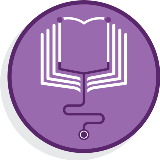Entrustable Professional Activities
Entrustable Professional Activities (EPAs) are important work tasks that trainees need to be able to perform with supervision at a distance by the end of Basic Training.
By the end of Basic Training trainees need to be able to perform each EPA with supervision at a distance.
Each of the EPAs:
- is an exemplar, discrete task, separable from other tasks, which relates to patient care
- can be readily observed and assessed
- relates to safe healthcare in the workplace. There are consequences associated to this task that are not easily reversed.
Entrustable Professional Activities for Basic Trainees in Adult Internal Medicine and Paediatrics & Child Health (PDF 1.1MB)
EPA Behaviours
Each EPA includes the behaviours of a trainee who can perform the task with supervision at a distance and examples of behaviours of a trainee who is not yet ready to perform the task with supervision at a distance. The behaviours are categorised according to the domains of the RACP Professional Practice Framework, however each EPA should be performed and assessed as a complete task.
How to browse related content
Some parts of the curriculum standards relate to content in other curriculum standards. For example, in the Medical Expertise behaviours you can access links to related Competency content. View the related content within each of the following domains by clicking the '+' symbol.
EPA 7 - Acutely unwell patients
Assess and manage acutely unwell patients
This activity requires the ability to:
- assess seriously unwell or injured patients and initiate management, including mobilising available resources
- recognise clinical deterioration and respond by following the local process for escalation of care
- recognise and manage acutely unwell patients who require resuscitation
- lead the resuscitation team initially, and involve other necessary services, such as intensive care or retrieval services
- perform this activity primarily in inpatient settings
Behaviours
Each EPA has lists of behaviours. The behaviours help trainees understand how they can improve, and help supervisors to make decisions about whether trainees can be trusted to do the task with supervision at a distance
 Medical expertise
Medical expertise
Ready to perform with supervision at a distance
Expected behaviours of a trainee who can routinely perform this activity with supervision at a distance.
The trainee:
- recognises seriously unwell patients and responds appropriately
- recognises high-risk births that require the presence of neonatal resuscitation team and responds appropriately*
- recognises age-appropriate trends and variations of vital signs with patients and their disease states
- gathers, filters, and prioritises information such as vital signs, focused clinical examination, past medical history, recent tests or procedures, and medications to form a focused differential diagnosis, initiate interventions, and drive early testing decisions
- uses an age-appropriate, structured approach to investigation and initial management so that both are synchronised and timely
- demonstrates knowledge of associated anatomy, physiology, indications, and potential risks and complications of resuscitation
- facilitates initial tests and interventions to stabilise patients
- applies basic and advanced life support or neonatal resuscitation* as indicated
- anticipates the next steps in health care and communicates patients’ situations efficiently to other members of the health care team
* This behaviour is particularly relevant to Paediatrics & Child Health.
Not yet ready to perform with supervision at a distance
Examples of behaviours of a trainee not yet ready to perform this activity with supervision at a distance.
The trainee may:
- have difficulty gathering, filtering, and prioritising the critical data for patients
- demonstrate gaps in their medical knowledge and inconsistently apply the knowledge they have acquired
- demonstrate an unstructured approach to the resuscitation of seriously unwell patients
- show a lack of confidence in their knowledge, making them uncomfortable playing a leading role in the management of patients
- apply skills inconsistently, resulting in an inability to reliably complete procedures, such as inconsistent use of universal precautions and aseptic technique
Related competency themes
 Communication
Communication
Ready to perform with supervision at a distance
Expected behaviours of a trainee who can routinely perform this activity with supervision at a distance.
The trainee:
- facilitates early bidirectional communication with patients and health care team members to allow for shared decision making
- uses closed loop communication with other health care team members during resuscitation
- explains the situation to patients in a sensitive and supportive manner, avoiding unnecessary jargon and confirming their understanding
- performs succinct, accurate, and complete handover of care of patients
Not yet ready to perform with supervision at a distance
Examples of behaviours of a trainee not yet ready to perform this activity with supervision at a distance.
The trainee may:
- communicate in a unidirectional manner without seeking input from patients or health care team members
- communicate in an unclear manner with other team members regarding management
- explain the situation to patients in an unclear manner
Related competency themes
 Quality and safety
Quality and safety
Ready to perform with supervision at a distance
Expected behaviours of a trainee who can routinely perform this activity with supervision at a distance.
The trainee:
- complies with escalation protocols
- maintains up-to-date certification in advanced life support
Related competency themes
 Teaching and learning
Teaching and learning
Ready to perform with supervision at a distance
Expected behaviours of a trainee who can routinely perform this activity with supervision at a distance.
The trainee:
- seeks guidance and feedback from health care team to reflect on the encounter and improve future patient care
- participates in debrief sessions
Related competency themes
 Research
Research
Ready to perform with supervision at a distance
Expected behaviours of a trainee who can routinely perform this activity with supervision at a distance.
The trainee:
- refers to evidence-based clinical guidelines and protocols on acutely unwell patients
- demonstrates understanding of the limitations of evidence and the challenges of applying research in daily practice
Related competency themes
 Ethics and professional behaviour
Ethics and professional behaviour
Ready to perform with supervision at a distance
Expected behaviours of a trainee who can routinely perform this activity with supervision at a distance.
The trainee:
- advises patients of their rights to refuse medical therapy, including life-sustaining treatment
- establishes, where possible, patients’ wishes and preferences about care, including CPR
- does not initiate treatment that is deemed futile, and directs to other care as appropriate
- involves patients or substitute decision maker, where appropriate, in discussions regarding treatment and end-of-life care
Not yet ready to perform with supervision at a distance
Examples of behaviours of a trainee not yet ready to perform this activity with supervision at a distance.
The trainee may:
- demonstrate a defensive or argumentative attitude in debriefing sessions
Related competency themes
 Judgement and decision making
Judgement and decision making
Ready to perform with supervision at a distance
Expected behaviours of a trainee who can routinely perform this activity with supervision at a distance.
The trainee:
- recognises the need for escalation of care and escalates to appropriate staff or service, such as involving the senior doctor and intensive care service following escalation in care policies and procedures
- recognises their own limitations and seeks help when required in an appropriate way
- uses information from credible sources, such as the electronic health record, to aid in decision making
- involves additional staff to assist in a timely fashion
Not yet ready to perform with supervision at a distance
Examples of behaviours of a trainee not yet ready to perform this activity with supervision at a distance.
The trainee may:
- have an incomplete understanding of their own limitations that may result in overestimation of ability and dismissal of other health care team-member concerns, or delay in responding to or asking for help for patients in need of urgent care
- inadequately consult with senior colleagues
Related competency themes
 Leadership, management and teamwork
Leadership, management and teamwork
Ready to perform with supervision at a distance
Expected behaviours of a trainee who can routinely perform this activity with supervision at a distance.
The trainee:
- works effectively as a member of a team and utilises other team members, based on knowledge of their roles and skills, as required
- communicates clearly with other team members regarding management and co-ordinates efforts of team members
- seeks guidance and feedback from health care team members following encounters to improve future patient care
Not yet ready to perform with supervision at a distance
Examples of behaviours of a trainee not yet ready to perform this activity with supervision at a distance.
The trainee may:
- demonstrate inadequate team work in the management of seriously unwell patients
- inadequately coordinate resuscitation
Related competency themes
 Health policy, systems and advocacy
Health policy, systems and advocacy
Ready to perform with supervision at a distance
Expected behaviours of a trainee who can routinely perform this activity with supervision at a distance.
The trainee:
- demonstrates an understanding of the systems underlying the escalation of care for deteriorating patients
- raises appropriate issues for review at morbidity and mortality meetings
Related competency themes
Related Knowledge Guide
Paediatrics & Child Health